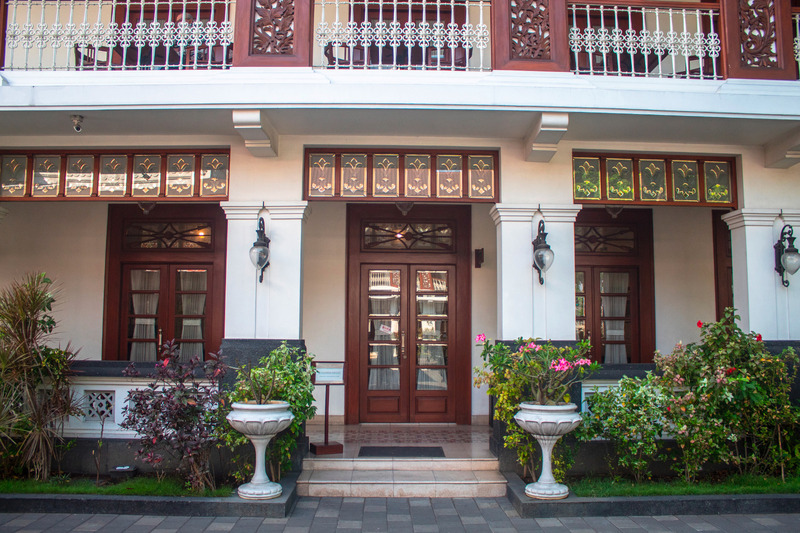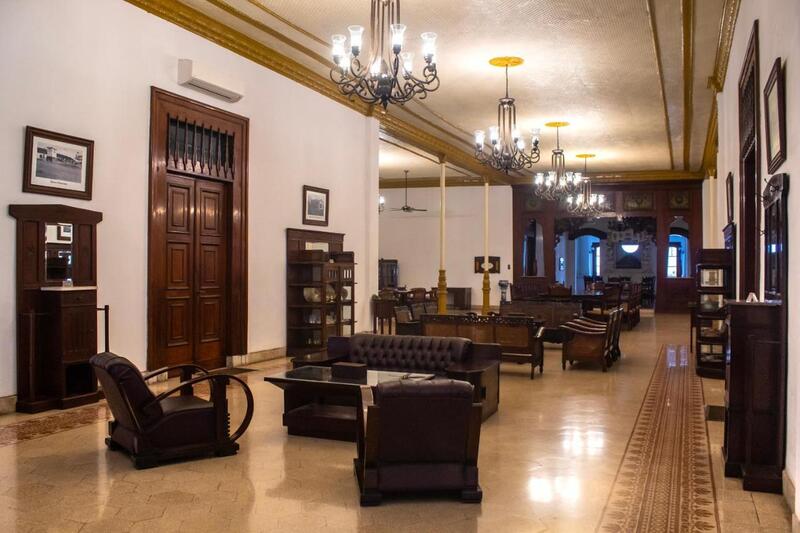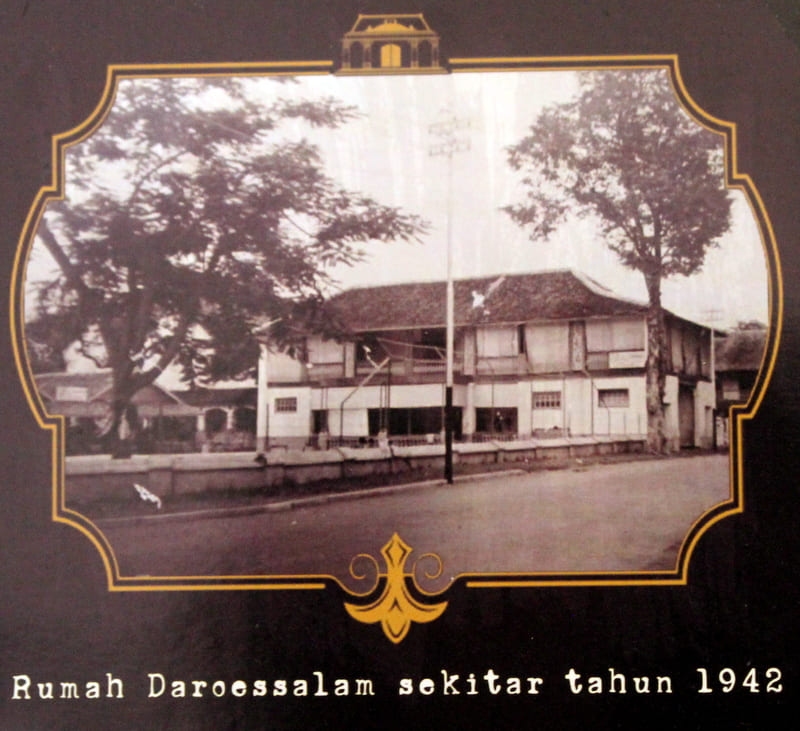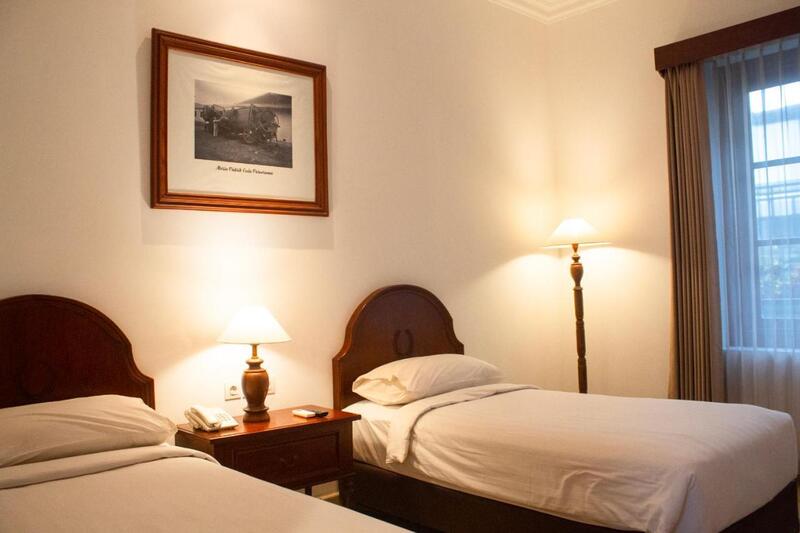Rich in beauty as well as history, this hotel, located in Pasuruan, East Java, is a slice of haven not to be missed.
The north coast road to Bali is one of East Java’s busiest.
Pasuruan draws hundreds of lumbering trucks overladen with tonnes of sugar cane for the five local mills. In colonial times, it was one of the richest provincial cities outside Surabaya.
In 1934, the regency capital was shifted to the higher and cooler Malang. Though the former Dutch fort and port now has only 200,000 residents, it retains and promotes a quality of well-preserved heritage.
Nowhere is this better displayed and easily accessed than at the Daroessalam Syariah Heritage Hotel, which is claimed to be Java’s oldest hotel.
The name means ‘abode of peace’ – appropriate for adventurers seeking a break before driving 90 minutes south to tackle the province’s major natural attraction: the Bromo mountain complex.
The hotel is big, though has only 31 rooms; the owner, Hanif bin Thalib, refuses to add more lest expansion damage the character.
“I’m crazy about history and preserving the past,” he said in the main hall, vast enough for meetings and weddings.
“We’ve added one wing constructed in the same style and features as the original – but there’ll be no more.”
The front veranda has low-slung ‘squatter’s chairs’ – as known in Australia, designed for a relaxing slump. The rooms are spacious and with all mod cons expected in any high-class hotel. The furnishings are solid timber, not the usual factory jobs with plywood interiors often found in modern hotels.
Although the Daroessalam Syariah Heritage Hotel is listed as a Shariah hotel, the restrictions are only on serving alcohol and pork – not proving marital status.
With such limited accommodation, the place struggles to break even; a fact that doesn’t worry Hanif bin Thalib: “I own the fuel station next door, so that’s where my money comes from. The hotel is for pleasure – as its name suggests.”
During the Dutch colonial era, the sugar industry, opium trade, and pawnbroking were mainly run by ethnic Chinese who used their wealth to build splendid mansions. Then came the Great Depression of the 1930s, savaging economies of the Western world. The archipelago was also crippled because much produce was exported to Europe.
When the sugar trade crashed, so did the business of the Kwee family, which had built the Daroessalam Syariah Heritage Hotel as its home more than a century earlier. They were forced to sell through a bank auction in 1938. The new owner was an Arab-Yemini family from Kalimantan headed by Mohammad bin Thalib. His grandson, Hanif, converted the building into a hotel determined to preserve much of the ambience – apart from an altar at the end of the prayer room with slender Venetian cast-iron pillars.
The marble platform of the shrine remains, but there are no paintings of deities or bowls of burning incense.
“I’m a Muslim, so the images have gone,” said Hanif bin Thalib. “In my faith, we’re supposed to use abstract designs, not decorations suggesting real life. But I’ve made exceptions.”
The most curious is a 19th-century European-style painting on the ceiling of a meeting room. It shows a romantic couple in the clouds (or a pastoral setting) complete with a tumbling cherub. The title, its meaning, and its artist are unknown.
The rooms are five metres high; tall doors keep the space cool through the free airflow. Some entrances are topped by stained-glass windows, and the original flush bolts and heavy iron bars when the house closes at night. Now security guards do the job.
The tiled floors are imported ceramics, so well-made that there’s little wear. Hung on the thick walls are scores of monochrome photos showing the house, its large, occupying families, and Pasuruan during the Dutch era. Then came the Japanese invasion of 1942. In many towns, the occupying forces commandeered churches and other large buildings to use as storehouses and workshops, but Hanif bin Thalib said that the hotel was left untouched.
Kwee Hong Sien, a Malang-born plant molecular biologist now living in the Netherlands, is the grandson of the original owner. He came from Liu Chuan, a Fujian Province in China. Kwee described the building as having “a mixed architectural style called ‘eclecticism’ and later in what was known as ‘the Indies-empire style’. The early family history is still clouded in mystery.”
Recent repainting keeps the rooms light and bright. Said Hanif bin Thalib: “Many Javanese fear ghosts in old buildings, but there are none here and no dark places where the superstitious think evil spirits may lurk.”
The courtyards are flanked by wide walkways; a pool, fountains, and grass surround please the eye and help dampen traffic noise.
Close behind the hotel is the Tjoe Tik Kiong temple with fine statues of the sea goddess Ma Zu. It’s equally well-preserved and said by the caretakers to be three centuries old, now catering to about 2,500 ethnic Chinese Indonesians living in the city.
Also easily accessible is the harbour and the sight of hundreds of colourful wooden boats that fish the Madura Strait. The enquiring wanderer will find much to satisfy.
The location, facilities, and essence of the Daroessalam Syariah Heritage Hotel suggest an expensive tariff, but the cost including breakfast is about half that charged in more modern hotels with contrived elegance, but no authentic history.
Disclaimer – The opinions expressed in this article are those of the author and do not necessarily reflect the views of Indonesia Expat.




